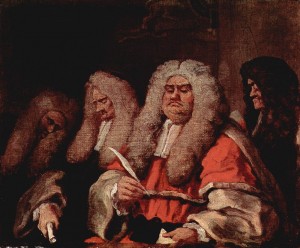Ohio v. Clark: The Supreme Court’s Latest Pronouncement on the Confrontation Clause
By guaranteeing criminal defendants the right to confront their accusers, the Sixth Amendment limits the ability of the government to use hearsay evidence against defendants at trial. Importantly, though, the Confrontation Clause only limits the use of statements that are “testimonial” in nature. A pair of Supreme Court cases from 2006 clarified what makes a statement testimonial, but left an important question unanswered. Last week, the Court finally provided an answer (sort of) in Ohio v. Clark.
Clark featured an unusually unsympathetic defendant who was convicted of physically abusing his girlfriend’s two very young children.

